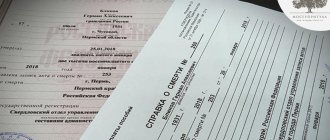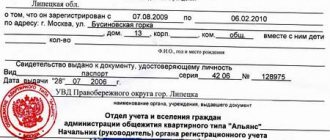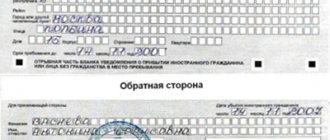Psychoneurological boarding schools – a social and medical institution that accepts patients over 18 years of age with mental disorders and in need of constant supervision, care and assistance. Patients with Alzheimer's disease are usually admitted to PNI or compassionate care units of boarding homes.
Special houses for lonely old people or elderly couples
Suitable for elderly couples who need care and assistance from strangers
There are also comfortable private boarding houses for the elderly, such as the “Care and Care” network. We provide comfortable cottages, quality food, and professional care for guests. Come for a tour!
Types of government institutions
There are several government agencies that offer ongoing care options for seniors. These include:
- Boarding schools. They offer basic service so there is a low monthly fee. Usually, not only elderly citizens, but also disabled people of the first two groups live here on a permanent basis.
- Psychoneurological boarding school . It is intended for people who have any serious mental illness or disability, confirmed by official certificates.
- Gerontological nursing home . This institution was created to accommodate elderly citizens who, due to disability or serious disorders of the musculoskeletal system, cannot take care of themselves independently. Such people need constant supervision and assistance, which is provided by medical workers and other employees of the institution.
- Standard nursing home . It provides care services for pensioners who are left without support from close relatives.
Attention! Permanent residence is offered exclusively on a paid basis.
Industry prospects
According to the World of the Older Generation association, at the beginning of 2018, about 630,000 older people needed inpatient care in specialized institutions. It is expected that by 2025 the public care system will not be able to cope with demographic changes, either financially or organizationally.
Advertising on Forbes
Taking into account the statistics on aging, we can say that the state is clearly not coping. The need is growing, and if we add the economic component for the country as a whole, then we can confidently say that only private business can solve this problem.
Given the current level of income of the population and the size of the average pension, it cannot be said that business will certainly be profitable. However, there is definitely a pent-up demand for these services. The choice of approach may vary, but in general, payback can be expected no earlier than in five years, and the average profitability varies from 5% to 18%. The main thing is to understand the possibilities and take into account existing developments. Here are a few lessons we learned from our experience:
- when developing a business model, you need to decide who you are going to serve: guests who are able to care for themselves, disabled people, bedridden people or elderly people with mental disabilities, for example, with the most common disease - dementia;
- revenue depends on occupancy, and that, in turn, on the season; the average percentage with a favorable arrangement is about 75-85%;
- the location of the facility affects the cost of services and profits, and the calculated price of accommodation and subsidies depends on the region itself;
- the network provides more advantages; also, do not underestimate investments in advertising and reputation;
- There will always be difficulties in finding qualified and experienced employees; it is easier to “grow” them yourself;
- you can combine the location of both social and commercial places in one establishment (through building relationships with the government customer), thereby increasing your stable occupancy, since commercial guests, as a rule, are accommodated by relatives temporarily, and social guests - permanently.
The author's opinion may not coincide with the editor's point of view
Who can live in a boarding house
Only representatives of certain categories of the population are accepted, which include the following citizens:
- veterans of wars and combat operations;
- disabled people of the first two groups;
- elderly citizens who live alone and cannot care for themselves without assistance;
- elderly people who require regular medical care.
If a person does not fall into the above categories, then he will not be able to get into a government institution, since there are a limited number of places offered, and funding is considered weak.
How can an elderly person get a seat?
The main condition is the absence of relatives who can regularly provide assistance to an elderly person. Additionally, the physical and mental state of the pensioner is taken into account.
Significant reasons for registration include:
- detection of dementia;
- lack of ability to take care of oneself;
- living at a considerable distance from relatives;
- completing a rehabilitation course that cannot be carried out at home;
- living conditions do not meet sanitary conditions.
Priority is given to combat veterans.
Modern institutions are equipped with the necessary equipment to ensure an optimal standard of living for the elderly. Therefore, elderly citizens themselves often want to join these organizations in order to make their living conditions easier, since they receive qualified medical care and constant care.
To obtain a voucher, you must contact social security representatives. An elderly person or his representative draws up documents confirming his right to government assistance. But institutions do not always have free places, so you usually have to wait your turn.
Under such conditions, you can use the services of private boarding houses, which offer care and medical assistance for elderly citizens on a paid basis.
Reference! Typically, such organizations have a simplified registration process, and there are always available places.
General situation with elderly people's homes in the Russian Federation
All boarding houses are divided into private and public. The former are more expensive, but have better living conditions. The second one is very difficult to get into. The state does not allocate the required amount of finance for their development and increasing the number of beds for the elderly. Today, the queue of pensioners trying to get into a federal nursing home amounts to 20 thousand.
Since the state fails to cope with its responsibilities, private organizations come into play. The nuance is that to open a private boarding house you do not need to obtain a special permit or license. The owner just needs to rent a room of appropriate size, provide beds, and hire one or more nurses. The presence of medical personnel necessary for elderly citizens is also not required here.
Even if sanitary, medical standards and other conditions for placement in a social institution are not met, the cost of placement here starts from 30 thousand rubles per month.
Decor
If the pensioner meets the requirements of the institution, then the following steps are performed to issue a voucher:
- initially you will have to visit a psychiatrist who conducts an examination and draws up a conclusion containing information about the presence or absence of any mental abnormalities;
- undergo tests and examinations, which are prescribed by a therapist;
- if a citizen has a certain disability group, then the corresponding ITU conclusion is requested;
- an application is drawn up in the form of the selected nursing home;
- the prepared package of documents is submitted to representatives of the district commission for study.
But even after preparing all the documentation, you will have to wait a little, since in state nursing homes there are usually no free places, and there is also a long queue of people wishing to use the organization’s services, so people often wait for several years.
As soon as a positive decision is made on the application, social security representatives come to the pensioner’s home. They study the living conditions and also draw a conclusion that the person really needs help and does not have relatives who could care for him. Additionally, social service workers sign the voucher.
How to register for a state nursing home?
Only the following categories of citizens have a chance to get in line for registration:
- Veterans of any war (WWII, Afghanistan, Iraq, Chechnya, and so on);
- Disabled people of groups 1-2, subject to a tendency to deteriorate health;
- Old people of both sexes in the absence of relatives. For women the age limit is 55 years, for men – 60 years.
Each specialized institution has its own criteria by which an old person can be registered. If a pensioner or person with a disability meets the age threshold and other conditions, he may be denied registration in a private or public boarding house in the following situations:
- If you have diseases that can harm others (HIV, tuberculosis);
- If there are capable relatives who live near the applicant and can take care of the old man;
- In the absence of evidence that the person is unable to care for himself.
Before assigning an old person to a gerontological center, you will need to collect an extensive register of documents. The full list is given below in the article.
What documents are required?
Before submitting your application, it is recommended to collect the necessary documentation for registration. This includes the following papers:
- passport of an elderly person;
- SNILS;
- a medical record, which contains marks from the necessary specialists, as well as the instructions and prescriptions of the treating doctor;
- a certificate containing information about the assignment of a certain disability group to a citizen;
- medical insurance;
- a certificate from the Pension Fund, including data on the amount of pension.
A response to the application is given within three days. If a negative decision is made, it must be written and objective, therefore the reasons for the refusal are indicated. Often they are associated with the lack of necessary documentation, so it is enough to bring some papers for the pensioner to be put on a waiting list or immediately admitted to a government institution.
Prices for services
If with state boarding houses the issue of payment is clear, then with private institutions the situation is more complicated.
Such institutions operate at their own rates and, depending on the location and services provided, the cost of maintaining a senior citizen varies. There are private establishments that offer the same payment terms as public ones, that is, ¾ of pension funds. Such options are not as common as those in which payment is made at fixed rates. Government institutions in Moscow and the region offer prices from 1000 to 3500 rubles. for placement. The above prices must be taken into account when refusing payment from pension funds.
- The price includes the following services:
- Meals 5 times a day;
- Conditions of increased comfort;
- Additional medical supervision.
Most of the wards are enrolled in institutions at the expense of pension funds. When calculating the above pensions, you should only rely on the nominal conditions of the institution.
How are services paid?
Nursing homes and boarding schools operate on a paid basis, so services are paid for directly by the pensioner:
- if an elderly person is represented as a capable citizen, then he independently pays for paid services;
- if he has a guardian, then payment is made by an official representative;
- If an incapacitated pensioner has no relatives, then the management of the nursing home becomes the guardian, and the payment is the pension of the ward.
Important! Single pensioners prefer to make payments automatically from their pension, for which an appropriate agreement is concluded with the management of the boarding school, and the required application is submitted to the bank where the citizen’s pension is received.
What things do the guests need?
In order for a relative to feel as comfortable as possible in the boarding house and not need anything, it is worth providing him with the necessary things:
- Cloth. You will need several sets of underwear, pajamas or sleepwear, casual clothes, smart clothes for a pensioner, comfortable slippers and walking shoes. If an elderly person is staying for several seasons, take care of warm clothes and shoes.
- Personal hygiene items. This includes a toothbrush, comb, razor, towels for bathing and morning routines. If a disabled person is registered at the center, it is worth taking care of diapers and diapers.
- Means of communication. This could be a mobile phone, tablet or laptop. Communication tools will allow an elderly person to contact his family at any convenient time.
- Disabled technology. This could be a cane, walker, crutches or a pensioner's wheelchair.
These things are necessary for the guest to comfortably adapt to the boarding house. They need to be prepared before the elderly person moves in.
Payment rules for pension benefits
It is allowed to pay a fee represented by part of the pension. Some pensioners completely sell their residential property, after which the amount received is transferred to the account of an organization that offers care services. The exact amount of the fee depends on the living conditions and pension of the citizen.
The following rates apply as standard:
- single people pay about 75% of their pension, leaving 25% for personal spending;
- if the pensioner has an incapacitated dependent, then a maximum of 50% of the pension is charged to pay for the nursing home;
- if there are two dependents, the fee is 42% of the income of the elderly person;
- if there are three dependents, then no more than 25% of the pension is contributed.
If for various reasons an elderly person is temporarily absent from a boarding school, for example, living in a hospital or going to visit relatives for several months, then the payment is only 25% of the pension, and if the period of absence exceeds 10 months, then no amount is paid.
Government institutions use percentages, so the exact size of a citizen’s pension is not taken into account. If there are not enough funds, then the difference is covered from budget funds, so there is no additional payment from relatives. If the pensioner lived in a municipal apartment before moving to a social nursing home, and there are no other registered persons, then the housing is transferred to the state after 6 months.
What to do if you are alone in old age
To begin with, it is worth separating the concepts: a single pensioner and a pensioner living alone . When assigning social assistance, single pensioners are considered to be men who have reached 60 years of age and women who have reached 55 years of age and who have no close relatives. And by pensioners living alone we mean people of the same age, but living separately from close relatives. Social assistance in these cases will be different.
The MOSCOW SOCIAL SERVICES NAVIGATOR operates on the website of the capital’s Department of Labor and Social Protection of the Population . On the interactive map, in a few clicks you can easily find the nearest organization where you can receive free social services in the city.
HUMAN NEEDS HUMAN
PSYCHOLOGICAL HELP
The Moscow Service for Psychological Assistance to the Population (MSPPN) will help you deal with age-related changes, loneliness and mental health. Every year, a Muscovite of any (!) age has access to 5 psychological consultations, 2 sessions of psychological diagnostics, 3 training programs, 2 consultations with a psychotherapist, 8 sessions of psychological rehabilitation, 2 consultations with a rehabilitation psychologist (initial and final).
If an elderly person is in an acute crisis, he can call the emergency psychological help line “051”. From mobile dial: 8 (495) 051. From landline: 051.
At the Central branch (Bolshaya Yakimanka Street, building 38), a psychotherapeutic group regularly meets especially for elderly Muscovites. During the classes, they acquire skills for independent psychocorrection, they develop new interests and friends. You can sign up for the group by calling: 8.
At the TCSO venues, metropolitan psychologists regularly conduct useful lectures and seminars on topics such as “Loneliness in late adulthood”, “Psychology of older people”, “Modern people 55+” and so on.
WHERE TO GET THE SERVICE? Make an appointment for a face-to-face consultation at one of the MSPPN departments or call the number.
"MOSCOW LONGEVITY"
For the older generation of Muscovites (55+ for women and 60+ for men), the Moscow Longevity project helps improve their health and gain new knowledge and skills. Sports sections, creative laboratories and language classes are located in each area. A total of 1,295 organizations in the capital are involved, classes are held completely free of charge.
There is plenty of activity to choose from: 12 main areas work. Information technology, English, general physical training (GPP), dancing, fitness and exercise equipment, gymnastics, Nordic walking, arts and crafts, drawing, healthy living, singing, checkers and chess.
Plus 4 special projects: medical rehabilitation “Longevity Training”, “Silver University” for professional retraining, “Good Bus” for excursions around the capital and theater studios “Moscow Theatregoer”.
HOW TO GET THE SERVICE? Contact any social service center, clinic, or organization where classes are held. Don't forget to take your passport, SNILS and Muscovite social card with you.
"MY CAREER"
Age and pension are not a death sentence. On a well-deserved break, you can change your profession and find yourself in something new. They will help you do this in a specialized one. The “5.0” program provides training for people 50+, which will teach them how to correctly write a resume and interact with an employer. If necessary, the person will be sent for retraining. More than 100 unique trainings are available, over 80 qualified trainers, career consultants and psychologists work.
HOW TO GET THE SERVICE? Contact (Sergius Radonezhsky Street, building 1, building 1).
SOCIAL HOUSE
If a single pensioner needs constant care, he can enter into a lifelong maintenance agreement with Mossotsgarantiya. Simply put, a person bequeaths his apartment to the state. In return, he receives guaranteed care: material support, social services, and foster care. At the same time, the person continues to live in his apartment.
In addition, by transferring your apartment to the ownership of the city, you can move into a social house (there are 4 social houses in total in Moscow). Comfortable apartments with all amenities are located in the Mitino and Maryino areas. Before moving, a person gets acquainted with the apartment and chooses where exactly he would like to live.
The houses are guarded around the clock, each apartment is equipped with a panic button. If a resident feels unwell or needs something, he calls and a dispatcher or nurse comes to him. Regular medical examinations are also carried out, a psychological service, physiotherapy rooms, and a halo chamber are organized.
WHERE TO ORDER THE SERVICE? Contact Mossotsgarantiya or call.
CARING FOR A LONELY VETERAN
"ALARM BUTTON"
Lonely Muscovites - veterans of the Great Patriotic War, veterans of military service or combat veterans can sign up for the Emergency Button service.
At any time of the day, through the “SOS” button you can call an ambulance, police, rescue service, fire department, gas emergency service and other city services. Service dispatchers monitor the arrival of the necessary services at the scene, clarify the results of the assistance provided, and also contact the nurse caring for the veteran.
WHERE TO ORDER THE SERVICE? Contact the TCSO at your place of residence.
"SANATORIUM AT HOME"
The “Sanatorium at Home” health program was created for those who are unable to travel to a sanatorium-resort treatment. Disabled people and participants of the Great Patriotic War, combat veterans, home front workers, residents of Leningrad, minor prisoners of concentration camps, as well as family members of military personnel who died in the line of military duty can improve their health without leaving home.
The home health course lasts 21 days. Every day a nurse comes to see an elderly person, and a doctor comes to see him once a week. Program participants are also provided with additional dietary nutrition and necessary medications.
WHERE TO ORDER THE SERVICE? Contact the regional Veterans Council at your place of residence.
NURSE
The nurse comes to the veteran every day. She helps an elderly person in everyday life: carries out sanitary and hygienic procedures, prepares breakfast and lunch, cleans the apartment, changes bed and underwear, monitors health, organizes leisure time and much more.
WHERE TO ORDER THE SERVICE ? Contact the TCSO at your place of residence.
SOCIAL WORKER
A social worker provides home-based services to a person. Its functionality includes home delivery of food and medicine, payment of receipts for electricity and water, preparation of documents to establish a disability group, and escort to a hospital or clinic. A social worker visits a veteran or a lonely pensioner 2-3 times a week.
WHERE TO ORDER THE SERVICE? Contact the TCSO at your place of residence.
SOCIAL “BUNKS”: PAYMENTS AND BENEFITS
MOSCOW SUPPLEMENT FOR NON-WORKING PENSIONERS
Non-working Muscovite pensioners are entitled to a regional supplement. Simply put, the pension “reaches” the social standard in Moscow. From September 1, 2019, it is 19,500 rubles per month. The main condition for its appointment: the person must have lived in Moscow (officially registered) in Moscow for at least ten years.
WHERE TO ORDER THE SERVICE? Contact any or through the “personal account” on the official website of the Moscow Mayor www.mos.ru.
CITY CASH PAYMENT
The monthly city cash payment (CMP) is provided to Muscovites of pre-retirement age and old-age pensioners who do not receive special payments as federal beneficiaries. This includes labor veterans, military service veterans, home front workers, rehabilitated persons who have been subjected to political repression and persons who have suffered from political repression. The amount of the increase is from 1000 to 2000 rubles.
WHERE TO ORDER THE SERVICE? Contact any.
TARGETED SOCIAL ASSISTANCE
Lonely pensioners who find themselves in difficult life situations are entitled to targeted assistance: material, food and clothing. The city will help with the funeral of a close relative after a fire or flood. If necessary, they will install water and gas meters and air conditioning for free, and help you purchase essential goods (using a social certificate).
WHERE TO ORDER THE SERVICE? For financial assistance, apply to any, and for food and clothing assistance - to the TCSO at your place of residence.
FREE TRAVEL AND MEDICATION
Single elderly Muscovites have the right to use city and suburban transport free of charge (except for taxis and minibuses). From August 2021 – and by suburban rail transport. There is also a benefit for free receipt of medicines according to doctors’ prescriptions.
If these “goodies” are not relevant for a pensioner, you can get a monthly pension payment instead. In total this is about 1700 rubles.
WHERE TO ORDER THE SERVICE? Contact any.
SOCIAL TAXI
Taxi service with preferential rates, where cars are equipped to make the trip convenient for veterans and Muscovites with disabilities. Therefore, if a lonely pensioner has a disability and it is difficult for him to move, he can apply for a social taxi.
A social taxi will take you to your dacha, hospital, clinic, rehabilitation center, airports and train stations, sanatoriums, and so on. The only thing is that the distance should not exceed 250 kilometers from Moscow.
WHERE TO ORDER THE SERVICE? Contact the Moscow branch of the All-Russian Society of Disabled People.
COMPENSATION FOR LANDLINE PHONE
Lonely elderly Muscovites are also entitled to compensation for the cost of a landline telephone. The monthly amount is 250 rubles.
WHERE TO ORDER THE SERVICE? Contact any.
SUBSIDIES FOR PAYMENT OF HOUSING AND UTILITIES
If more than 10% of a single pensioner's income is spent on utility bills, he may qualify for a subsidy. The city reimburses part of the costs for housing and communal services. For Muscovites over 80 years old or elderly people in need of constant care, the subsidy can be delivered to their home.
Important: the benefit is accrued for six months, after which it must be extended.
WHERE TO ORDER THE SERVICE? Contact the local department of the City Center for Housing Subsidies.
Can I refuse to provide a place?
It is not always possible for a pensioner to get a place in a nursing home. The main reasons for refusal include:
- an elderly person lives with able-bodied relatives;
- when moving, the standard of living will significantly deteriorate;
- after receiving a pension, the citizen retained his ability to work;
- a person has been diagnosed with an open form of tuberculosis, so he requires treatment exclusively in a tuberculosis clinic;
- diagnosed with HIV;
- if oncology is detected, a person is treated in an oncology center, and in case of remission, there is an opportunity to move to a nursing home;
- People with epilepsy or mental illness will not be able to use the services of a boarding school.
Another reason for refusal is the pensioner’s repeated violations of the institution’s rules, for example, if he drinks alcoholic beverages or drugs, or smokes in unauthorized places.
Property and personal effects
Property issues when enrolling an older citizen in a boarding school require detailed analysis. If a pensioner is accepted into an institution, the right to dispose of property remains with relatives. In the absence of these, the following development scenarios are allowed:
- The property goes to the institution providing guardianship. In this case, the transfer of property takes place under the category of payment for boarding house services.
- Property goes to the state. This option is possible if the citizen has not re-registered the property in favor of the boarding school.
It is important to know that the fact that an older relative is enrolled in a boarding house is not considered a reason for the annulment of the inheritance. Cancellation is allowed, but only if the grandmother or grandfather makes an appropriate decision. Making a decision on inheritance is also possible through a certified representative of the citizen.
Alternative options
The advantages of using state nursing homes include the possibility of paying a fee from a citizen’s pension. But sometimes the line is so long that people have to wait more than a year. Therefore, it is important to use the services of private boarding houses. They charge higher fees but still offer favorable living conditions.
These boarding houses use modern equipment, provide a cozy environment, provide round-the-clock medical care, and also offer interesting leisure and quality care.
State institutions for elderly care in Moscow and the region
There are many state-run boarding schools in Moscow and the region. Finding these establishments is easy, just enter the corresponding query in the search engine, but it is worth considering in advance that most boarding houses are overcrowded, which is why they issue refusals. Also, in the region there are enough private establishments at a price lower than Moscow. It is also possible to find private boarding houses using search engines.
This is important to know: What documents are needed for a notary to register an inheritance after death











